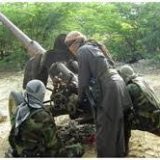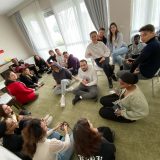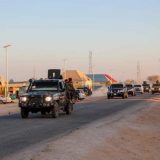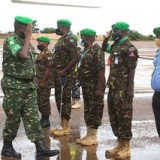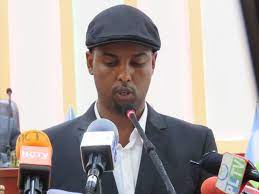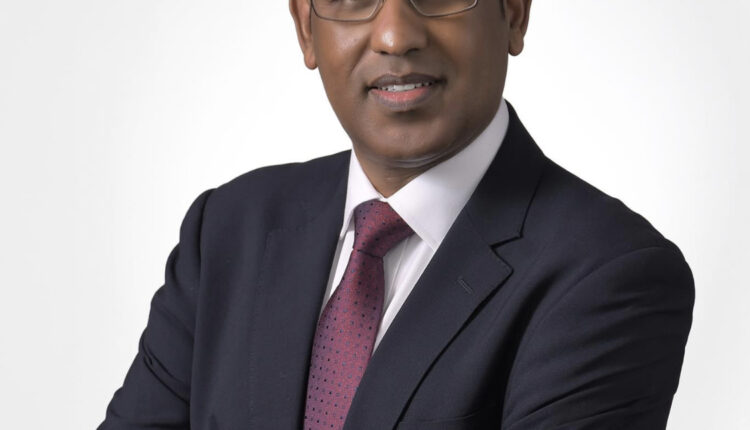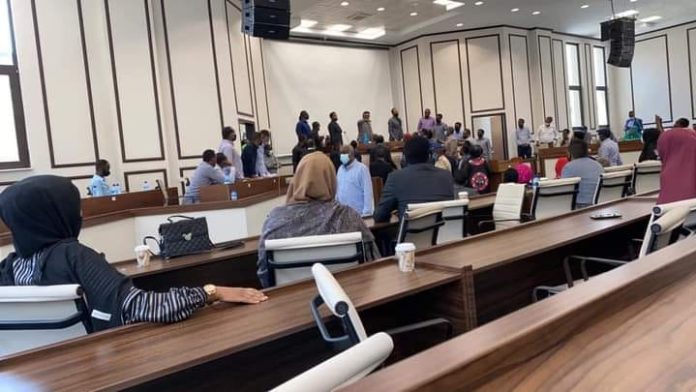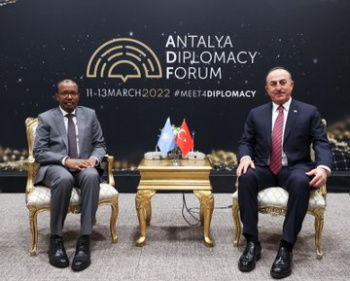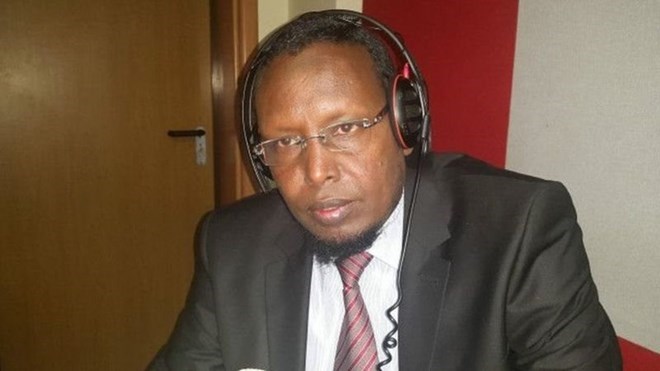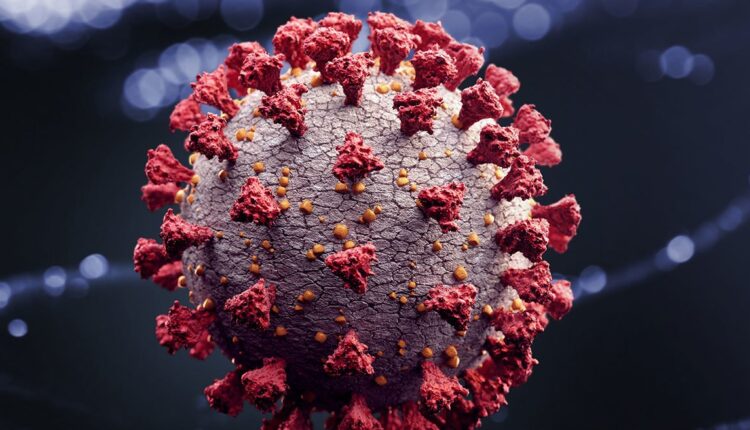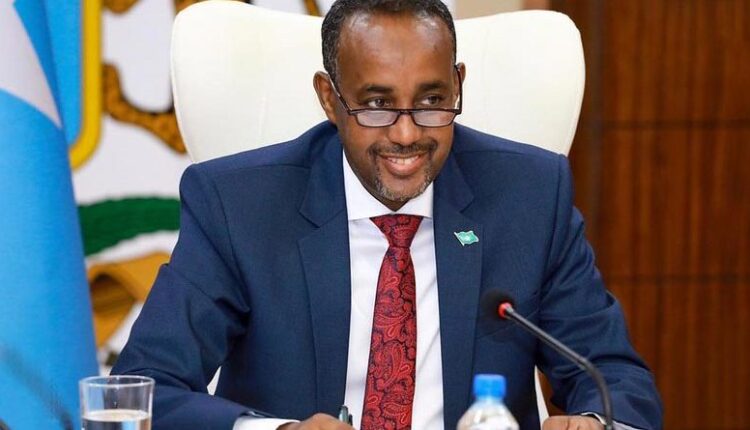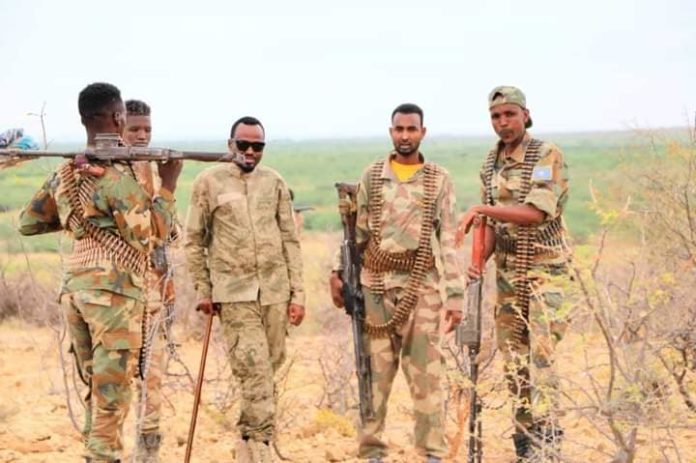Somali boy kidnapped and beaten by traffickers who raped pregnant woman on Italy migration
by editor · March 11, 2015

Ismail*, 16, in Lampedusa, Italy
Ismail encountered unimaginable horrors even before he boarded the treacherous migrant boats from Libya to Europe
By Lizzie Dearden
When Ismail fled Somalia for Europe, he knew the boat journey to Italy would be treacherous but he was unprepared for the brutality of the human traffickers who would ruthlessly exploit him on land.
The teenager was kidnapped, beaten and ransomed and saw female migrants get repeatedly raped by men who preyed on their desperation and helplessness.
Ismail, not his real name, is one of more than 8,000 migrants who have made the treacherous boat crossing to Italy since the start of this year alone.
Save the Children cared for the 16-year-old when he arrived in the port of Lampedusa last month and he told the charity’s staff about his experiences.
Despite the horrors of his long journey, Ismail said he was happy just to have made it alive.
Almost 1,000 migrants had to be rescued by Italian authorities during a 24-hour-period last month, when at least 10 people died after their boat capsized.
Ismail left Somalia in December after his father died and money for his school fees ran out, saying goodbye to his mother, two sisters and five brothers.
“In Somalia you cannot live happily, there is a lot of violence, people fire their guns in the street, and you run the risk that you will be approached by militants and be forced to join their militia,” he said, recounting the story of a friend who returned home from shopping in the local market to find his wife and children murdered.
“If I stayed in Somalia my future wouldn’t be good. So that is why I came here to Italy, to get a good future and to work, to get an education, to get a good life, to get peace.”
Ismail caught a bus to the Somalian city of Hargeysa, where he met men who took money to take him to Addis Ababa in Ethiopia. Some of his friends were stopped by police at the border and forced to go back.
In Addis Ababa, he was approached by traffickers who offered to take him to Tripoli, the Libyan capital, for $4,700 (£3,000), promising him they money would by a phone, new clothes and a place to sleep.
Ismail told Save the Children police were bribed at every checkpoint the car passed through, eventually reaching Khartoum in Sudan
.
Eritrean migrant teenagers walk to the military zone of the docks of Lampedusa, Italy
During the 15 day drive, the teenager had only eaten biscuits and drank mango juice but the nightmare was only beginning.
Ismail was introduced to another trafficker there, who he believed to be from the same group, to take him to Tripoli in Libya.
He was crammed with 30 other Somali migrants into a truck, reaching the vast desert six days later.
“In the desert the traffickers took the women, and raped them,” Ismail said.
“One of these was a woman who was seven months pregnant. We tried to stop them but they threatened us with arms.
“The woman who was pregnant, when she came back to the group took a scarf and tried to strangle herself but luckily we stopped her.
“We tried to calm her, telling her that what had happened wasn’t her fault.”
After the drive started again, Ismail said the drivers forced one of the women to sit next to him naked and ordered her to “do what he wanted”.
Ismail is one of countless migrants forced to cross deserts and war zones while at the mercy of smugglers who often kidnap them and demand huge ransoms from their families in exchange for their lives.
Children have recounted sexual abuse, torture and the horror of fellow migrants dying either at the hands of captors, drowning at sea or being thrown overboard.
Save the Children says that most unaccompanied children currently arriving in Italy are from Eritrea and Somalia, while others are from sub-Saharan and West Africa. Most of the families landing are Syrians.
The long drive to Tripoli was interrupted by men who appeared to be police officers in Ajdabiya, Libya, who told the group: “Welcome to hell”.

Conflict is raging in Tripoli as the fall-out from the Arab Spring continues.
Ismail and the other migrants were imprisoned in an apartment until they were paid an extra $300 (£200), knowing they would be unable to refuse.
“We weren’t able to speak amongst ourselves and we were constantly beaten without any motive,” Ismail said. “I called my mother who was able to get the money and she wired it to the traffickers in Khartoum who in turn called the Libyan.”
He was held for a month before being taken to Tripoli and handed over to another trafficker who was paid $400 (£265) for each of them. Imprisoned in another apartment, they were forced to pay $1,800(£1,200) in order to reach Italy.
“I told my mother if she doesn’t pay the money they are going to kill me, so they must pay the money even if they don’t have it,” Ismail said.
“She collected money from different people and sent the money. In Libya they will take everything from you, your shoes, clothes, money, everything that you have.

Another child migrant called Yusuf saw people die of starvation at the hands of traffickers on the way from Sudan to Libya
“They say there are Muslims but I don’t believe this. Libya is a really dangerous place, no one should go there.”
The teenager was hidden with the group at what he believed was a marine base in Libya until being ordered at gunpoint to board the boat that would take them across the Mediterranean under the cover of darkness.
The travellers had to pay for their own food and water for the journey, which went well for 12 hours until the motor suddenly stopped.
“All the people began to cry,” Ismail said. “They were thinking that they will die but God helped us. “Luckily a boat with Tunisian fishermen arrived and they tugged us for three hours until we reached the boat belonging to the Italian Coast Guard.”
Italian authorities have pleaded for help saving migrant boats, which cost the country around £6 million a month last year.

Rome’s Mare Nostrum mission saved 150,000 people fleeing poverty and warzones in Africa in 12 months
The navy launched the Mare Nostrum operation in October 2013 after 366 people died in a shipwreck off Lampedusa, but it has since been shut down and replaced by an EU-wide mission called Operation Triton.
It is a much smaller effort with a third of the budget, operating within just 30 miles of the Italian coast and leaving huge areas of sea uncovered.
Ismail reached Lampedusa with 250 other migrants on 15 February to find out that one of his friends had died on the same route weeks before.
He called his friends to tell them not to leave Somalia, adding “there is a 50 per cent chance you will live and a 50 per cent chance you will die”.
Ismail has since been transferred by Save the Children to Sicily, where he will be placed into smaller centres to be integrated into Italian life.

Migrants smile after disembarking from the Ezadeen at Corigliano Calabro harbour on 3 January
As a Manchester United and England supporter, he wants to play football and get a proper education but said he must get a job first to repay his mother.
“If I don’t get any work I will go to another country, like Norway, like England, like Germany,” he said.
“I think everything will be ok. Finally I am happy, so happy. I am alive.”
Source: The Independent


